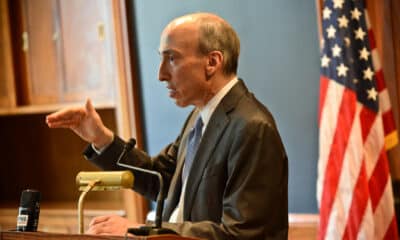How Circle alerted the NYDFS about Binance’s insufficient reserves

- USDC issuer Circle alerted the NYDFS about mismanagement of Binance’s reserves last year.
- The complaint came around the same time that Binance imposed its BUSD auto-conversion policy.
Circle may have a hand in the recent regulatory crackdown on Paxos and Binance [BNB]. The USD Coin [USDC] issuer reportedly filed a complaint against Binance in 2022. In doing so, it alerted the New York Department of Financial Services towards the mismanagement of reserves that backed the tokens issued by the world’s largest crypto exchange.
Circle’s stablecoin rival, Paxos
According to a report by Bloomberg, the complaint to the NYDFS by Circe included blockchain data, which indicated that Binance did not have enough crypto assets in its reserves to fully support the tokens it had issued. A person familiar with the matter revealed that the firm had lodged the complaint in autumn 2022.
Interestingly, Binance had imposed its BUSD auto-conversion policy right around that time. The policy, which was unveiled on 5 September 2022, automatically converted the user deposits of USD Coin [USDC], Pax Dollar [USDP], and TrueUSD [TUSD] on the exchange to Binance’s BUSD stablecoin. It is likely that this move prompted the complaint by Circle, given that the market share of USDC diminished due to Binance’s decision.
News of Circle’s complaint broke just hours after the NYDFS ordered Binance’s stablecoin partner Paxos to stop minting new BUSD. The security status of the stablecoin was called into question earlier this week after the Securities and Exchange Commission (SEC) issued a Wells notice to the BUSD issuer. In a press release, the firm stated:
“Paxos categorically disagrees with the SEC staff because BUSD is not a security under the federal securities laws.”
Binance chief Changpeng Zhao addressed the recent crackdown against his crypto empire. The CEO maintained that the developments were nothing but FUD. He added that his team would review other projects to ensure that the enforcement action didn’t impact them.






